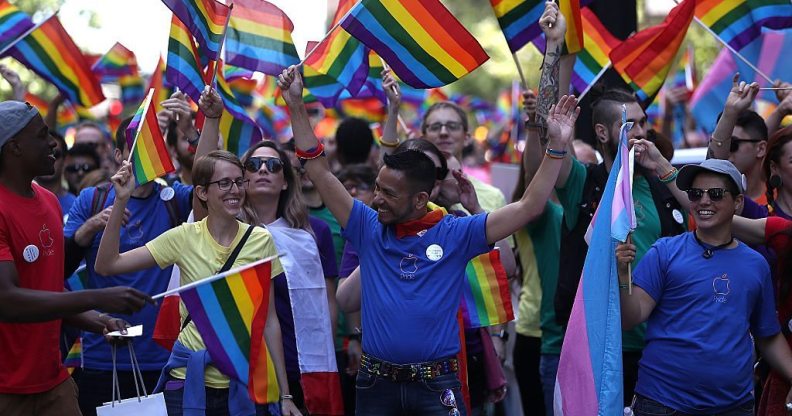California has taken a huge step towards legally recognising non-binary people

Pride in San Francisco.
California has taken a huge step towards legally recognising non-binary people.
The state Senate has passed a bill which would allow people to choose a third gender on official forms like driving licences and birth certificates.
Currently, Californians who want to change their gender on government documents have to submit proof that they have undertaken medical treatment to change physically.

The Gender Recognition Act, as it will be called if it passes into law, would instead let people choose the gender they identify with, according to KXTV, a Californian TV channel.
And the options would include a third, non-binary choice.
In the words of SB 179, which was first proposed in January, the bill would “ensure that intersex, transgender, and non-binary people have state-issued identification documents that provide full legal recognition of their accurate gender identity.”
“It would take some time obviously to put into place, but that opportunity would be there where it currently doesn’t exist,” said Jo Michael, legislative manager for LGBT rights organisation Equality California.
“That would mean a great deal to a lot of people who use identification every day that doesn’t reflect who they are.”
Michael expected the bill to pass the Assembly within the next few weeks.
From there, it will go to Governor Jerry Brown’s desk.
If the governor signed the bill, a third gender option would be available starting in January next year.
Last month, the Oregon state legislature passed a bill which would offer drivers the option of ‘X’ instead of the binary ‘M’ or ‘F’ options on licences.
Oregon’s governor, also coincidentally named Governor Brown, could aid up to 20,000 trans and non-binary people in the state if she signs the bill into law, civil rights group Basic Rights Oregon has estimated.
In March, one of these people became the first legally agender person in the US.
Patch, a 27-year-old video game designer, spoke at the time about struggling with obstacles like official forms which assume a gender binary.
“Having a blank field still allows other genders to exist,” advocated Patch, adding that authorities should allow people to “opt-in” to the gender binary.
“Forcing it is weird.”

